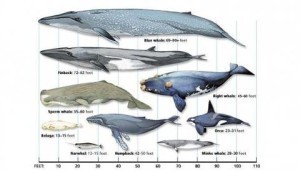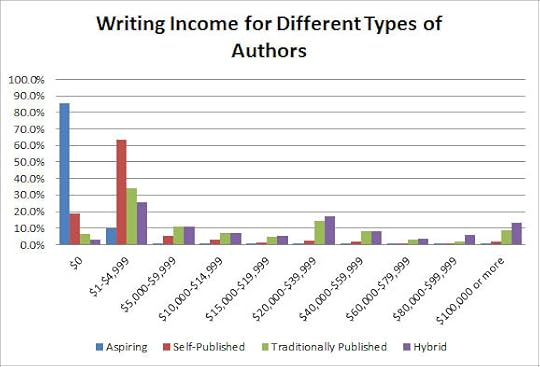Elizabeth Spann Craig's Blog, page 137
March 30, 2014
Freelance Writing: Think Like an Editor, Sell Like a Pro
By Jennifer Brown Banks, @jenpens2

There’s great truth to the expression, “You should walk a mile in someone else’s shoes to understand them.” Which is why I’m very fortunate, that when it comes to the field of writing, these stilettos have covered much territory.
In my journey of more than a decade, I have served as a relationship columnist, a ghost writer, professional blogger, and a reviewer. I have penned pieces for digital publications, and for popular print glossies too. Many of which you’ve likely read.
But, what has probably enhanced my creative career the most, was my role as a senior editor of a regional publication, a few years ago.
Walking in these “shoes” helped me to discover that a successful, progressive path in writing is not just about a proficiency with words; it is about the psychology of selling, whether it’s widgets or words.
In my tenure, I had the opportunity to work with and hire freelancers from all levels and backgrounds. I even saw my “former” self in some of the mistakes and oversights they made in their pitches and submissions. Ouch.
What I found was that the ones that were the most successful and categorically made the most money, were the ones that understood this important prevailing principle: Editors are “consumers” too.
That’s right. These individuals that we greatly admire, (occasionally suck up to) and aspire to be like, have some of the same basic universal needs that we all do as “consumers.”
Here’s what they want (other than more hours in the day or a winning lottery ticket) …
They want to save time.
They want to save money.
They seek to have their lives enhanced and simplified.
They want minimal stress.
They want bouncing and behaving hair. (Well, that was just Me.)
In essence, today’s busy editor seeks products and services that will allow these fundamental needs to be met, so they in turn can meet the needs of their readership, advertisers, and supporters. (And of course, they’d like to enjoy a decent quality of life in the process.)
Dan Case, Editor of Writing for Dollars, shares that one of the most effective things a writer can do to increase his odds of publication and meet an editor’s needs, is to “strictly follow the submission guidelines established at the magazine’s site.”
So if you‘re on board, today we’ll explore how to not just consider your intended audience in your writing, but to think like an editor, to improve your submission strategy, your rate of acceptance, and ultimately your bottom line.
Tips to minimize an editor’s stress.
Don’t put the “i” in diva!
Here’s a case in point. In my editorial role mentioned earlier, I was fortunate to have some awesome talent respond to my periodic Craigslist postings for writers and columnists. One of these individuals was a southern freelancer who had pretty impressive credentials, very unique spins on article assignments, and who followed directions to the letter. Like Michael Jordan, her “delivery” record was incredible. There was just one problem. She was a “hot shot” that was difficult and demanding to work with. She complained about her modest pay, deadline times, etc. It didn’t take long before I decided that with all her assets, she was a pain in the assets. She was gradually phased out. This is a no-brainer. If an editor has to choose between two writers with equal talent, the one who is flexible and causes the least amount of grief will likely win out. The moral of the story here? Whenever possible, go with the flow. Don’t take big stands on small issues. Always remain professional and respectful. If you want “red carpet” treatment, become a celebrity, not a writer.
Be reliable.
You can have Pulitzer prize winning potential, still if you miss important deadlines, or can’t be counted on to respond to important emails in a timely fashion, it becomes a problem for all involved. Remember that Murphy’s Law happens. Allow yourself enough time to successfully juggle, and to produce quality work on schedule. The career you save might be your own.
Read and follow the submission guidelines before submitting work or contacting the editor with questions.
A common question that I often encountered was…“Do you accept interviews?”
Though answering questions comes with the territory, it can be frustrating and time consuming when the information is clearly outlined in the writer’s guidelines on the site, for those who choose to read them.
And failing to do so doesn’t provide for a good first impression. Trust me.
How to save editors time.
See the big picture.
Assuming that you understand the publication’s mission and target audience, what else needs to be factored into the publishing equation? How about the competition? The sponsors? The time of the year? Check the archives. What has been covered recently? Are there any gaps in information that you could tackle in terms of your submission and area of expertise?
Be familiar with different “Content Management” Systems and various Style Guides.
For instance, if you’re a professional Blogger, many jobs now require that you not only know how to engage an audience, but that you also know how to upload your own work on the site for review and approval. The less “hand holding” and training you require, the more valuable you become to an editor–no matter what type of publication.
Submit work that is properly formatted and requires minimal revisions. Remember, “Time is money.” Proof your work before hitting the “send” button, and don’t rely on spell check to catch all your errors. One writer friend recently shared with me that an editor actually sought to deduct a fee from the writer’s pay for the time that the editor spent preparing the piece for publication. Don’t let this be you.
When turning in an article or feature piece that shares study findings or important statistics, provide the related link or site for verification purposes.
In other words, don’t make the editor have to research your research.
Consult Editorial Calendars.
Editorial Calendars simply organize content by planning and publicizing future themes and publication needs. Writers use them, as do potential advertisers. Here you’ll find a glimpse of the exact needs of an editor, thereby increasing your odds of acceptance and potentially helping the editor to cover desired targeted topics. Sasee Magazine shares one here: http://sasee.com/submissions/
Whether you’re new to freelancing, or a veteran seeking to increase your acceptance rate and score more paid work, the following tips will not only allow you to get in to editors’ heads, but also in their good graces and ultimately their budgets.
 Jennifer Brown Banks is a veteran freelance writer, popular Blogger, and relationship columnist. Her work has been featured at sites such as: Pro Blogger, Men With Pens, Write to Done, and the Well-Fed Writer. Her Blog, Pen and Prosper, was recently chosen as a Top 25 Writing Blog for 2014. When she’s not writing or reading, she’s usually in hot pursuit of a good bargain sale.
Jennifer Brown Banks is a veteran freelance writer, popular Blogger, and relationship columnist. Her work has been featured at sites such as: Pro Blogger, Men With Pens, Write to Done, and the Well-Fed Writer. Her Blog, Pen and Prosper, was recently chosen as a Top 25 Writing Blog for 2014. When she’s not writing or reading, she’s usually in hot pursuit of a good bargain sale.The post Freelance Writing: Think Like an Editor, Sell Like a Pro appeared first on Elizabeth Spann Craig.
March 29, 2014
Twitterific Writing Links
by Elizabeth S. Craig, @elizabethscraig
Twitterific links are fed into the Writer’s Knowledge Base search engine(developed by writer and software engineer Mike Fleming) which has over 23,000 free articles on writing related topics. It’s the search engine for writers.
Americans can get confused writing for Canadians, unless they write in French: http://ow.ly/uOIGM @mnmarcus
5 Things a Writer’s Yoga Practice has Brought to Her Writing Practice: http://ow.ly/uOHfa @elephantjournal @KimHaasWrites
3 Most Common Complaints About Agents by Scriptwriters: http://ow.ly/uOIu9 @ChadGervich
What To Do When You Have Writer’s Block: http://ow.ly/uOGAc @thoughtcatalog
Is Hybrid Publishing Always the Best of Both Worlds? http://ow.ly/uOHVX @jamigold
Even the biggest and smartest publishers still have a lot to learn about digital marketing: http://ow.ly/v00UW @MikeShatzkin
How Libraries and Patrons Can Beat Publishers at Publishing: http://ow.ly/uWOPy @msd2020 @pubsmartcon
‘I Write Because I Love, And My Love Is Writing’: http://ow.ly/uMsbG @thoughtcatalog @vallarigupte
Before You Publish: Amazon’s Requirements: http://ow.ly/uMsDt @infolitetech
What Do Agents Like to See When They Google Writers? http://ow.ly/uMsGX @carlywatters
Dollars & Sense for #Writers – how to tell which books to buy and which to borrow: @EdieMelson http://bit.ly/1lLKgdx
Starting Your Own Publishing Business: http://ow.ly/uMu3S @111publishing
In Writing, There Are Rules, And Then There Are “Rules”: http://ow.ly/uMtgi @ChuckWendig
There is no perfect: http://ow.ly/uMrY4 @lisajanicecohen
5 Things You Should Know about Working with Beta Readers: http://ow.ly/uMu4r @byondpapr
The Neurological Similarities between Successful Writers and the Mentally Ill: http://ow.ly/uMu5p @thoughtcatalog @Delistraty
Ebook Piracy: – A Writer’s Perspective: http://ow.ly/uMssE @gregorybarron
Must a Writer Go Hybrid for a Higher Income? http://ow.ly/uZ1wu
Writers on How They Deal With Criticism : http://ow.ly/uMui7 @imjasondiamond @flavorwire
#EtherIssue discussion: book and publishing start-ups: http://ow.ly/uX75x 11 a.m. ET / 3 p.m. London GMT (now) @Porter_Anderson
Finding Your Author Voice: http://ow.ly/uMuCs @novelrocket @rachelhauck
A Bookseller On Changes in the Profession and Love for the Job: http://ow.ly/uMtqj @WSHUnews
Maybe the distractions and chaos of our lives are fuel for the writing fire: http://ow.ly/uMtJd @megrosoff @writerunboxed
Missing persons in crime fiction: http://ow.ly/uZ0cf @mkinberg
So you want to be a game writer? Top 10 tips: http://ow.ly/uMsSD @technorati
Are You Writing the Right Story? http://ow.ly/uMt3D @janice_hardy @diymfa
Use This Screenwriting Technique to Break Your Copy Down into 4 Easy Steps: http://ow.ly/uMsXN @mktgcopywriter
6 Steps to a Strong Cover: http://ow.ly/uWOoo @pubsmartcon
Tips for faster writing: http://ow.ly/uL7Da @DebbyGiusti
Creating Your Map to Successful Authorship: http://ow.ly/uL7bp @ninaamir
What Penguin Random House isn’t doing: http://ow.ly/uL7T7 @thefuturebook @passivevoiceblg
Querying: Sending Nudges: http://ow.ly/uWUnt @ibelieveinstory
Shotguns and Rifles 101 for Writers: http://ow.ly/uL63I @fionaquinnbooks
Harsh Early Reviews of 20 Classic 20th-Century Novels: http://ow.ly/uL7k3 @mental_floss @sseeeaaann
Are You Publishable or Not? Reading the Tea Leaves. http://ow.ly/uL72u @writerunboxed
Telling the Truth About Client-Agent Problems: http://ow.ly/uL76b @jodyhedlund
Forensic Trace Evidence: Hair and Fur – Info for Writers: http://ow.ly/uL5V1 @FionaQuinnBooks
‘We haven’t hit what epic fantasy is capable of yet’: http://ow.ly/uL86e @BrandSanderson
What’s your End Game? http://ow.ly/uL7O7 @M_Richmond21
Stories Don’t Expire – Don’t Rush to Publish http://ow.ly/uL6Nk @susankayequinn
Writing and publishing platform “Hi” releases (and a look at other start-ups for writers): http://ow.ly/uWpa7 @Porter_Anderson @craigmod
How a Focused, Limited “Baby Edit” Can Help Improve A Writer’s Style : http://ow.ly/uL69u @vgrefer
Do you have a 3-year plan? http://ow.ly/uL6St @loriculwell
How To Write A Romantic Suspense: http://ow.ly/uL6iO
Confessions of an Outlier: http://ow.ly/uL5Ka @HughHowey
5 Ways to Jump Start a Stalled Story: http://ow.ly/uL7eQ @EleriStone
4 Simple Reasons Why Many Writers Don’t Succeed: http://ow.ly/uL6HN @grammerly @bang2write
How To Use Social Media To Get Your Underdog Film Made: http://ow.ly/uHq06 @nofilmschool @robmockler
Refusing To Review Books Marketed To One Gender Is Counterproductive: http://ow.ly/uHplK @lilitmarcus @thefrisky
Writing Faster: Breaking the 10,000-Word-Day Barrier and Composing a Rough Draft in 2 Weeks: http://ow.ly/uHpOa @goblinwriter
The death of the Western – again http://ow.ly/uHpW0 @JohnRosePutnam
Don’t explain away the magic: http://ow.ly/uHpZz @TheGrahamMilne
10 Tips for Writing a Short Story: http://ow.ly/uHoGC @LynHornerauthor
20 Ideas for Creating and Marketing Your EBook: http://ow.ly/uHqyB @jeffbullas
There Are No Mwuahaha Villains in the Artistic Life http://ow.ly/uHpmj @Jan_Ohara @writerunboxed
Creating a Fantasy World: Names: http://ow.ly/uUJNz @iulienel @fantasyscroll
Your book sucks: are authors being bullied with one-star Amazon reviews? http://ow.ly/uHqxG @hayleycampbelly
Worry About Your Writing? How To Fall Back In Love With It: http://ow.ly/uHoGl @Jill_Jepson
Tips for Taking Your Reader on a Road Trip: http://ow.ly/uUaa3
Active Setting and Why it Should Matter to You: http://ow.ly/uHoG1 @MaryBuckham
Why we don’t need (and shouldn’t want) a publishing deal: http://ow.ly/uHplj @chrisrobley
A New Voice in the Book World: The Author: http://ow.ly/uTTJB @Porter_Anderson @thoughtcatalog
Blogging: Focus on the Discipline, not the Results: http://ow.ly/uHqy8 @ryanbattles
6 Steps to Becoming a Successful Indie Publisher: http://ow.ly/uHqxc @1106design @GutsyLiving
1 writer’s process for editing as she goes: http://ow.ly/uTqWu @authorterryo
Amazon for Authors–Tools and Thoughts: http://ow.ly/uHpZb @Wordstrumpet
How to Publish With Your Own Imprint: http://ow.ly/uHplc @PeaceNicole
Murder in the library–examples in crime fiction: http://ow.ly/uTqhw @mkinberg
How to Develop Your Plot With Three-Dimensional Conflict http://ow.ly/uHpZS @EmilyWenstrom
How to Find a Critique Partner and Set Ground Rules: http://ow.ly/uHoGS @JeriWB
Handle synonyms with care: http://ow.ly/uFDS6 @Roz_Morris
Romance E-Book Bundles: A Blight or a Bonus? http://ow.ly/uFDwi @EroticRomNews
Seasonal Writing Disorder http://ow.ly/uFCEs @lydia_sharp
The Changing Role of Agents: Read Before You Query (or Self-Publish): http://ow.ly/uFFld @ForewordLit @annerallen
Killing the Top Ten Sacred Cows of Indie Publishing: Can’t Get Indie Books into Bookstores? http://ow.ly/uFF6y @deanwesleysmith
5 Reasons to Talk About Your Writing: http://ow.ly/uFCDE @MGMinded
How dense is too dense? http://ow.ly/uFDFg @ventgalleries
10 Best Things About Being A Writer: http://ow.ly/uFEJ2 @joannegphillips
How to Know Your Book’s Audience: http://ow.ly/uFERK @JanetKGrant
Catch the Reader’s Attention: http://ow.ly/uFEhD @noveleditor
Writing A Novel: Finishing Well: http://ow.ly/uSmyi @lindasclare
How To FOCUS on Writing: http://ow.ly/uOHeU @PatrickLenton
Writing For TV: Trial Scripts/Shadow Schemes: http://ow.ly/uOIHj @scriptwritinguk
Freelancers: Your Editor (Probably) Didn’t Steal Your Pitch. Here’s Why. http://ow.ly/uOGzL @contently @rkaufman
Your Writing Doesn’t Have to Be Good: http://ow.ly/uOIzw @danasitar
The Science of Literary Criticism : http://ow.ly/uOHrR @joshuarothman @newyorker
SHAKESPEARE system for helping authors figure out self-publishing: http://ow.ly/uOGzh @sffworld @passivevoiceblg
How to Make Your Book Popular: http://ow.ly/uOHWq @literaryeric @pshares
40 Things An Author Absolutely Must Do To Succeed: http://ow.ly/uOHWR @kevparsons
6 Tips For Getting Your Work Discovered: http://ow.ly/uOIHN @JessGrose @fastcompany
Why It’’s So Hard To Get Published (And It’s Not Amazon’s Fault) http://ow.ly/uOHfF @lucyleid @thoughtcatalog
The Writers Alley: Exposition: What Is It? What To Do With It? http://ow.ly/uOIBo
Using Emotional Discharge to Power Up Your Story: http://ow.ly/uOIGX @writingeekery
Free Collaborative Screenwriting App Adds Intuitive Outlining Tool: http://ow.ly/uOHrU @bartondeepwood
Do spoilers for books actually improve them? http://ow.ly/uOHry @guardianbooks @carmitstead
Writing A Murderously Good Mystery: The Importance of the Murder Victim: http://ow.ly/uR9o6 @woodwardkaren
4 Ways to Improve Your Writing: http://ow.ly/uRahv @kmweiland
Going to Battle with the Inner Voices: http://ow.ly/uRaho @Jodi_Kendall
Telling Tales on the Publishing Industry: http://ow.ly/uR9Eb @thexmedic
Interesting and Unusual Ways to Sell Your Book: http://ow.ly/uR9E8 @heavenencounter
Writers at Work: Cathy Pickens: http://ow.ly/uRaD3 @hank_phillippi
A message to publishers about book marketing: how to rise above the din: http://ow.ly/uRaqo @JonnyGeller
How I Write: David Baldacci: http://ow.ly/uR9G3 @thedailybeast @davidbaldacci
Small publishers are benefiting from changes in the industry: http://ow.ly/uR9Xh @guardianbooks @passivevoiceblg
When The Old Ways Work (Discoverability): http://ow.ly/uR9os @KristineRusch
Scriptwriting: Should Writers Pay Up Front For Representation? http://ow.ly/uR9VW @LeeZJessup @scriptmag
Was it noir, literary, or pulp fiction? http://ow.ly/uRaig @CalebPirtle
11 Ways to Successfully Promote Your New Book: http://ow.ly/uR9Xo @smallbiztrends
Write a thriller: Know the plot’s destination: http://ow.ly/uR9nu @MattReesAuthor
5 Valuable Charts That Show How Publishing Is Changing: http://ow.ly/uRaHd @Janefriedman
How to be a Good Critique Partner | Wise Ink’s Blog: http://ow.ly/uRagX
5 things 1 Writer has Learned from (almost) 4 Years of Publishing at Amazon: http://ow.ly/uSl8W @TraciTyneHilton
Controlling How Much of YOU Appears in Your Fiction: http://ow.ly/uSlpy @cateartios
An agent on ‘Does a writer still need an agent?’ http://ow.ly/uSh2G @BFLAgency @alison_morton
Writing Prompts to Stretch Your Conceptual Skills: http://ow.ly/uSgGd @ConnieBDowell
Why This Story? … Or 8 Questions They’re *Really* Asking: http://ow.ly/uSlc9 @bang2write
10 Tips for Becoming a Better Writer: http://ow.ly/uSh7i @EileenMaksym
The 3 Deadly Symptoms of Self-Doubt: http://ow.ly/uSlzA @beccaquibbles
Why Authors Should Consider Graphic Novel Adaptations: http://ow.ly/uSl1N @NAMartist @thecreativepenn
How to get self-published books on the shelves of local bookshops: http://ow.ly/uSlS4 @L1bCat
A Look at Ebook Subscription Services: http://ow.ly/uShaP @ninjadueces22
Sex Tips for Screenwriters: http://ow.ly/uSh5p @BigBigIdeas @scriptmag
On Authorial “Frauditis”: http://ow.ly/uSgZU @vgrefer
Creating Stunning Character Arcs: The First Act: http://ow.ly/uSh8g @kmweiland
Why Crime Fiction Is the Most Popular Genre: http://ow.ly/uSlxc @joelgoldman1
‘I Made the Mistake of Starting a Small Press and So Can You’: http://ow.ly/uTAqO @passivevoiceblg
Recommended Resources from industry expert @JaneFriedman: http://ow.ly/uSgGp
5 Things You Can Learn From The Colbert Report’s Head Writer: http://ow.ly/uSgGy @heyitsopus
Book Reviews: The Good–The Bad–The Ugly: http://ow.ly/uTBDo @eNovelAuthors
Daunted by Book Promotion? Don’t be. http://ow.ly/uTz3l @CarolineSandon @womenwriters
Experimental Writing: It’s About More Than Looking Weird on the Page: http://ow.ly/uTzvH @SequoiaN
A Self Publishing Success Story: http://ow.ly/uTBX0 @MJRose @MegWClayton
Why it’s time to stop thinking of writing as a profession: http://ow.ly/uTBcm @damiengwalter
Authors: Warning Signs That You’re Being Scammed: http://ow.ly/uTu6U @bookgal
3 Easy Tips to Promote Your Book http://ow.ly/uTuqF @lindasclare
Cover copy tips: http://ow.ly/uTzfx @eNovelAuthors
The post Twitterific Writing Links appeared first on Elizabeth Spann Craig.
March 27, 2014
When an Unreliable Narrator Needs a Little Help
by Deborah Nam-Krane, @ dnkboston
It took me almost six years to publish my series The New Pioneers, even though I had four completed novels. Part of my delay was that it takes a number of chances. At its heart, it’s romance with chick lit elements. However, each novel has its own special character to reflect that story’s heroine. Thus far, The Smartest Girl in the Room has explored Emily’s coming-of-age and The Family You Choose has uncovered the dark family secrets that haunted Miranda. Harel. But Jessie Bartolome’s story, The China Doll, is where I’m taking the biggest risk. While The Family You Choose reveals a secret you didn’t realize was there until the very end, it’s clear from the outset that The China Doll is a mystery with a capital M.
I’m pretty confident my readers can handle the genre-tweak; it’s the main character that made me nervous.
Jessie is the youngest of The New Pioneers’ main characters. She’s eighteen when her story opens, albeit a worldly (and world-weary) eighteen. An eighteen year old can be responsible for her own narrative, but the question that’s stalked her for several years reaches back to when she was a very young child- and arguably before she was born. We all know how much fun it is to read from the perspective of an unreliable narrator (Holden Caulfield, we hardly knew ye), but I have a complicated mystery I need to resolve. I want us all to have fun, but I also want to give my readers a big payoff. Jessie needs to tell her story, but she’s going to need help. And because this is a big story that affects many people, she’s going to need a lot of it.
I dropped a number of hints in The Family You Choose, but this deserved more background. Annabelle Hendrickson Abbot could supply the perfect amount of information, but she’s been dead for over twenty years. Worse still, her connection to Jessie is tenuous and an extended presence in her story wouldn’t make narrative sense. However, Annabelle’s perspective needed to be included, so I wrote a short story to do just that. An Engagement answers some questions left over from The Family You Choose and then presents some of its own- all of which will be answered in The China Doll.
Arguably, the best way to counter a hazy memory is with facts. I can’t give away who does that here (but it’s in Chapter 16!), but I can tell you it’s someone who knows how to dig and has been motivated to do so. That motivation is going to beg the question: what is the difference between facts and truth? In my series, that question is personified by Jessie’s older but in some ways just as fragile cousin Richard Hendrickson.
It’s been clear since The Smartest Girl in the Room that Jessie’s spirited temper is in some way related to Richard’s burdens, and in The China Doll we will finally understand the heartbreaking depth of the sacrifices he made as a child to protect the ones he loved. But…Richard’s memories are also those of a child, albeit older, and the opinions he formed as a result might warrant closer inspection. That, or he might find they’re a dangerous blind spot that’s hiding something very important. He’ll get some help from a very unexpected source to do just that, and therein we might begin to find the answer to everyone’s questions.
Does Jessie lose something as a heroine because she needs help piecing together her story? I don’t think so. All things being equal, the agency of a child is diminished compared to that of an adult, and ironically we see that in Richard’s recollections. In the final accounting, this novel and the rest of the series isn’t about what happened to my characters as children but what they can do about it now that they’re adults. I will leave you to decide by the end which cousin has more agency in the present, and which one needs a shake to the shoulders.
***
Hypocrisy, half truths and lies…
Sick of being treated like she’s going to break, Jessie Bartolome is back to her old ways and calling everyone on their hypocrisy. Sheesh! One little breakdown and even easygoing Martin Shepard thinks she’s too fragile to handle their age difference. Good thing her older and equally yummy teaching assistant Robert Lester thinks otherwise…right?
After spending so long cleaning up after everyone else, Jessie’s cousin Richard has never had the time to start a life of his own. However had he managed to find his girlfriend Zainab? So what is Richard going to do now that everyone else has grown up? Marry Zainab and start a family? Things have never been that easy for a Hendrickson…just ask his cousin Michael.
Richard’s mother, Lucy, is one of the most powerful women in Boston… so when is she going to put a stop to the blackmail ruthless Alex Sheldon has holding over her for years? And if Richard knows more than he’s letting on, why hasn’t he gone after Alex himself? The question is, how much does he- or anyone else- really know?
Welcome to the Bartolome/Hendrickson family.
The China Doll is Book Three in The New Pioneers series.
Deborah Nam-Krane published The Smartest Girl in the Room and The Family You Choose in 2013. She just released An Engagement and will be releasing The China Doll at the end of March. She reserves the right to incorporate mystery, politics and history into her romances whenever she sees fit.
While Deborah is active on her blog, Facebook page and Twitter account, the best way to keep in touch is through her mailing list. She only sends out newsletters to announce new releases- and to give her subscribers special discounts on her work.
The post When an Unreliable Narrator Needs a Little Help appeared first on Elizabeth Spann Craig.
March 25, 2014
Must a Writer Go Hybrid for a Higher Income?
By Elizabeth S. Craig, @elizabethscraig
I’ve been hearing a lot lately about author earnings—self-published, traditionally published, and earnings from what writer Bob Mayer coined “hybrid writers.” I think that the chart that started it all (and the report’s data has since been questioned by a variety of writers, notably Hugh Howey), is this one from Digital Book World’s Dana Beth Weinberg last December:
Hybrid writers do come out pretty well on the chart. And I’ve seen similar data on various other charts I’ve seen.
I worry about this. Being a hybrid writer has worked for me…so far. It’s a good gig…if you can get it. But I feel like things are shifting a little bit already (as it always seems to in this business).
For one thing, my income was a lot more balanced between my Penguin books and my self-pub books in 2012. Then in 2013, my self-pubbed income far outweighed my trad pubbed income (66% self-published income).
I do think starting out being published by a traditional publisher have helped me in some ways. But notice the ‘buts’:
I feel like I got a solid introduction to mystery readers and name recognition. But—this was a Big 5 publisher with an already-established group of avid readers for a popular subgenre. There are dedicated readers (and we love them) that will read all the cozy mysteries Penguin puts out every month. They even know the pub schedule for these books—they always release the first Tuesday of the month. This helped me get a toe-hold…no question.
Would I have gotten the same boost from a smaller publisher? I can actually answer that question—no. My debut novel was a 2009 mystery from Midnight Ink. It didn’t take off and the series was dropped by the publisher, although the book has since become a much stronger-seller than that first Penguin book in 2010 (because I’ve self-published four sequels to the Midnight Ink book since then).
I had excellent developmental and copyediting and learned a lot from my editors. I was able to apply that to my self-published books. But—I know other traditionally published writers who have not had the wonderful editors that I’ve had. They really gained nothing from the experience. (In fact, I had one dud, myself.) Besides, there are excellent freelance editors to be had. Yes, you have to pay for them out of pocket, but a well-written, well-edited book has the potential to recoup money paid up-front. Digital publishing’s long tail means that over the years, the book can potentially find an audience and pay back our investments.
I had distribution to physical bookstores and libraries. This also helped gain me new readers. But—I think distribution of physical books is becoming less important. I know that my ebook sales are higher than my print sales…every month. Even for my traditionally published books.
Frankly, my self-published book prices look amazing next to my trad-published book prices on my Amazon author page.
You’ll notice I don’t mention marketing support as a benefit of traditional publishing. :)
You’ll also notice that I don’t mention cover design and formatting as a benefit. I do love my trad covers. I think they’re intricately drawn and clever with the hint of danger in the cozy setting. But I can buy an awesome cover, myself. Formatting is something I hand off and get back a day later. It’s not a deal-maker for me to stay with trad pub for these services, although it’s a nice bonus.
What I feel now: I’ve gotten what I’m going to get (mainly) out of the experience as a hybrid author.
I feel that the benefits that I’ve received are winding down. I’ve gotten a great education from my talented editors. I’ve received exposure in physical bookstores and libraries and an introduction to a dedicated reader base. I hate to sound like I just want to take my ball and go home, but that’s likely the ultimate direction I’m heading in.
Mainly, now…I feel as if my self-publishing production is slowed down because of traditional publishing. I wince as I say that, but it’s the truth.
Why I’ve continued being a hybrid so far:
I had someone in the industry ask me last week why I’m still a hybrid (I signed another contract extension last August). Mainly I continue working with my publisher because I love the characters and my readers love the characters… it hasn’t seemed like a great idea to stop writing the series.
Random Observations:
I’m thinking—if you really are going to query publishers for the above benefits, it might help you more if you went through a publisher who gets you good distribution and a decent advance and no funny business in the contract (a Big 5, if you can swing it…and do watch that contract. Especially with a Big 5). A larger publisher will likely trump a smaller one in terms of distribution reach and establishing a large reader base. You should get the same level of editing at many smaller publishers as you would at a larger one, though.
Maybe my main point is that you don’t have to remain a hybrid writer. You could start out as a hybrid author, soak up all the knowledge you can, and then self-publish afterward.
Assisted self-pub: This is for the folks who are interested in trad pub because of the cover design, editing, and formatting. I was recently asked if I’d be interested in having a publisher to do my self-publishing for me—a package that would include the covers and formatting, etc. I wasn’t, actually. Not if it means giving up part of my royalty. I can subcontract out that work myself, and I have a team in place. Now if I had no time because I had a demanding day job or had really overwhelming family obligations or just knew I’d never be self-published if I didn’t buy a package…then I’d do it. I’d just be very careful about how much royalty I was giving up or what the terms were.
I do feel grateful for my start in the business…and incredibly, incredibly lucky. I have no rancor in me at all…and I’ve loved working with the industry pros that I’ve had the good fortune to associate with. I’m speaking strictly from a business…a financial…viewpoint.
It does worry me that some writers may think they’ve got to be a hybrid writer to be bringing in good income. Because the pros of being hybrid are definitely shifting. Or maybe the pros remain but there gets to be a point where you’ve maxxed out your advantage. It might not be a forever thing.
Thoughts on this? I’ve just dumped a bunch of opinion out there and just personal experience out there…everyone has different needs, so my approach won’t fit for everybody. At least we have choices, right?
The post Must a Writer Go Hybrid for a Higher Income? appeared first on Elizabeth Spann Craig.
March 23, 2014
Tips for Taking Your Reader on a Road Trip
By Elizabeth S. Craig, @elizabethscraig
There are many things that I really like about writing series. For one, readers seem to love them. I think that’s because they have more of an opportunity to really get to know the characters and become invested in them. They also enjoy becoming part of a familiar world…the setting we’ve created in our books.
As a writer, I like series because they’re much easier for me to write. I establish my regular characters, create a world, and then come up with fresh adventures in each book.
The problem is that, after a while, either the readers seem to get restless (at least their customer reviews tend to reflect this sentiment) or the writer feels a little restless. This has happened to me a few times. In Memphis Barbeque book four, I decided that I would (clearly, since the series mentions Memphis) set the book in Memphis, but I would center the book’s action around a large barbeque festival/competition there instead of the barbeque restaurant the book is usually centered around. In Southern Quilting mystery three, I took my characters out to a remote location in the mountains and stranded them there the entire book. And now, for my 7th Myrtle Clover book, I’m planning for most of the book’s scenes to take place at a retirement home.
The good part about doing this—it makes the story feel a little fresher for series writers. It makes things fresher for readers, too.
The bad part about doing this—editors aren’t wild about it. And readers may think they want something different, but not realize that there’s actually a comfort in familiarity. They may not want things as different as they think.
How these road trips went for me:
In the Memphis book, Rubbed Out, it went the easiest. I had some of the book’s action back at the familiar hangouts. The regular characters that the readers loved were all still in the book—and in a believable way, because they were all attending the local festival or competing in the barbeque contest. I had the best of both worlds there.
In the Southern Quilting book, Quilt Trip, it was admittedly tough. My editor raised several concerns when I shared my outline with her. She commented that readers love the familiarity of a particular setting and that they enjoyed seeing all of their favorite regular characters in a book. She had a point—I know I feel the same way when I’m reading a series or watching a television show and a book or episode leaves out one of my favorite characters. I feel a little cheated. So I revised my outline to incorporate as many of the core group of regulars as possible on the road trip…while trying to keep it believable. And I offered to set half the book back in the old setting if she still wasn’t wild about it. But I’d sold her on it. And I was glad because I was so gung-ho to write that book.
The only problem was that it’s very hard to write a book from one limited setting. This was a Southern Gothic inspired book with a crumbling Victorian mansion as the setting—and an ice storm that cut off the house from the rest of the world. You have to work especially hard to make things lively and keep conflict and excitement going. It’s tough. About halfway through the book, I wasn’t sure if I could keep it up any longer, but then I got an idea for an additional obstacle or two to throw at the characters. It ended up being one of my favorite books and I haven’t yet gotten any direct reader complaints about the way I handled the road trip.
I’m a little more nervous about the 7th Myrtle Clover book that I’ll be writing in about a month (it’s fully outlined now). Readers of that series are very set in their ways and I do hear directly from them if I make any changes. And this will be a change. But I realized how much easier it was to write the Memphis story by having the story’s action switch between the new setting and the older, familiar one. So I’m planning to make it more like that story and less like the (difficult to write) quilting mystery.
In Summary:
Readers like series regulars. Unfortunately, those regulars live in the town that you’re leaving behind as the character(s) go on a road trip. Is there a way that you can either believably bring some of them along, or incorporate those characters into your novel in other ways?
It can be tough to sustain a story at a limited location (or a country house mystery…which is what I was trying to create when I wrote Quilt Trip) for the span of a whole novel. Could you have half your action in the old, familiar setting and half on the road?
Basically, you’ve probably considered this because you either wanted to world-build a little or experiment somehow. We just have to make sure it works. It’s a risky proposition, really—we’re taking something our readers find familiar and comforting and pushing them to expand their boundaries.
Have you ever taken your readers on a road trip? How did it go? How did you satisfy your series’ readers?
Image: MorgueFile: andi
The post Tips for Taking Your Reader on a Road Trip appeared first on Elizabeth Spann Craig.
March 22, 2014
Twitterific Writing Links
by Elizabeth S. Craig, @elizabethscraig

Twitterific links are fed into the Writer’s Knowledge Base search engine(developed by writer and software engineer Mike Fleming) which has over 23,000 free articles on writing related topics. It’s the search engine for writers.
Celebrity Memoirs Are Awful. Here Are 4 Ways to Fix Them: http://ow.ly/uDyRU @PhilEdwardsInc
“Building an Author Platform Wore Me Out”: http://ow.ly/uRabn @jillkemerer
How Much ‘Discussion’ Are Publishers Ready to Have? http://ow.ly/uR9XE @Porter_Anderson @thoughtcatalog
The Novel in Real Time : http://ow.ly/uDyvH @newyorker @dbezmozgis
Character Motivation: What is Her True Journey? http://ow.ly/uDyvf @plotwhisperer
Getting More Writers of Color to Workshops: http://ow.ly/uCmj7 @tinytempest
Bad choices for book titles: http://ow.ly/uCm5r
Gesture Writing, Scene Outlining, and the Essence of Things: http://ow.ly/uClSJ @tinytempest
20 Inspiring Pinterest Boards for Writers: http://ow.ly/uCmiq @carefulcents @thewritelife
An Attack of the Freebie-Jeebies: http://ow.ly/uCm5n @carolJhedges
Top author-teachers reveal their advice to students: http://ow.ly/uClS1 @guardianbooks
Tips for Writing a Fight Scene: http://ow.ly/uClRR @Janice_Hardy
On Writing Dead Genres: http://ow.ly/uClSm @ava_jae
23 Essential Quotes from Ernest Hemingway About Writing: http://ow.ly/uCmiN @joebunting
Price Fixing and e-Books: Who Wins? Who Loses? http://ow.ly/uCmij @dannyosnow
The importance of professionally approaching reviewers: http://ow.ly/uCm5A @JackCroxall
8 Essentials to Make Writing Pay the Bills: http://ow.ly/uA43l @Pdfitzpatrick @thecreativepenn
Why 1 Writer Made His Latest Book Available For Free: http://ow.ly/uA3XK @NathanNWE @forbes
6 Key Things to Consider When Developing Characters: http://ow.ly/uA3Mc @jodyhedlund
Reader Reviews Vs. Reviewer Reviews: Is There a Difference? http://ow.ly/uA3Jd @RachelintheOC
What to Know Before Hiring a Freelance Editor: http://ow.ly/uA3Fm @amshofner
3 Attributes for a Successful Writing Career: http://ow.ly/uA3BB @marygkeeley
Planning Is Not A Dirty Word: http://ow.ly/uA3u2 @susansleeman
Scriptwriting: 3 Tips on How To Manage Agents: http://ow.ly/uA3gO @scriptmag
Inside The Pixar Braintrust: http://ow.ly/uCmiz @edcatmull @fastcompany
Advice for Writers Gained from the London Author Fair 2014: http://ow.ly/uOGzD @IndieAuthorALLi @KatharineDS
Advice for Writers Gained from the London Author Fair 2014: http://ow.ly/uOGzD @IndieAuthorALLi @KatharineDS
Advice for Writers Gained from the London Author Fair 2014: http://ow.ly/uOGzD @IndieAuthorALLi @KatharineDS
A myth for writers to disregard: http://ow.ly/uzpZ1 @ADDerWORLD
When to unveil your book cover: http://ow.ly/uzpuw @JanetKGrant
10 Tips To Boost Your Creativity: http://ow.ly/uzqgS @hayleymckenzie1 @scriptmag
3 Signals It Might Be Time To End Your Series: http://ow.ly/uzqdI @vgrefer
Why You Aren’t Writing More…And What You Can Do About It: http://ow.ly/uzq5F @growwithstacy
Identity and the Writer: http://ow.ly/uzpu5 @jakonrath
The Future of Books Looks a Lot Like Netflix: http://ow.ly/uzqbb @wired_business @ryantate
How Can We Overcome Stigma About Indie Books? http://ow.ly/uzqmb @Yvonne__Spence
Amazon’s Latest Gimmick, the Book Countdown Deal: Does it Work? http://ow.ly/uzq22 @claudenougat
10 Tips for Writing About Law Enforcement: http://ow.ly/uzpun @janice_hardy
How to Build Street Cred as an Indie Author: http://ow.ly/uzpNN @juli_alexander
13 Ways to Sell More Books: http://ow.ly/uzpLB @evmysterywriter
How to Build A Writer Platform With No Time, No Credentials And No Book: http://ow.ly/uzpQE @writerplatform
4 Things Productive Creators Do (or should): http://ow.ly/uzq9a @allieburkebooks
A Million Words To Mastery? http://ow.ly/ @woodwardkaren
The 25 Best Tumblr Accounts for Book Nerds: http://ow.ly/uzpux @mashable
The ‘Write From The Middle’ Method: http://ow.ly/uxYaB @jamesscottbell
Why 1 writer chooses to write, despite the compensation: http://ow.ly/uLL5k @jjw12562 @cogwbur
Writing Multi-Layered Narratives: http://ow.ly/uxY84 @ghostfinder
Making Characters Unforgettable a.k.a. Character Arc : http://ow.ly/uy06w @msheatherwebb
2 Ways To Introduce Setting Quickly And Effectively: http://ow.ly/uxY8N @woodwardkaren
Andrew Wylie advises you pick the plague!” over Amazon: http://ow.ly/uLKU1 @KirstenReach @melvillehouse”
How Do They Do It? Writing Rituals Of Famous Authors: http://ow.ly/uy05P @otherpublishing
Smashwords: Indie Ebook Author Community to Earn More than Traditional Ebook Authors: http://ow.ly/uxZTs @markcoker
Interview With Peter Armstrong at LeanPub with advice to writers of serials: http://ow.ly/uxY9Y @Janefriedman @peterarmstrong
5 Ways to Land an Agent: http://ow.ly/uy1f6 @StinaLL
Book Bombs, Release Days, & Other Good Free Marketing Tips: http://ow.ly/uxX2e @hmward
Irony of Character: http://ow.ly/uy08e @scriptwritinguk
5 Ways to Write Your Book: http://ow.ly/uxYKa @trainingauthors
Are book prices too low for authors’ time and skills? Discuss now at #EtherIssue (11 a.m. ET/ 3 p.m. GMT) with @Porter_Anderson
Beyond cuts: the many roles of a writer’s editor: http://ow.ly/uy009 @NellFrizzell @guardianbooks
5 Qualities Successful Blogs Have in Common: http://ow.ly/uxXxY @jodyhedlund
Whales, Mermaids and Your Publishing Long-Tail: http://ow.ly/uK2xB @gpstberg
Discoverability: 4 Ways to Win Readers When Self-Publishing http://ow.ly/uK0ZV @susankayequinn
Are the Loose Ends in Your Story Too Loose? http://ow.ly/uxXuj @KMWeiland
Beyond Dickens: Trends and Tech in Serial Fiction: http://ow.ly/uxXrF @Janefriedman
Should You Write the Whole Book Before Querying? http://ow.ly/uxZdQ @RachelleGardner
Apple: Stop imposing your moral agenda on publishers and readers: http://ow.ly/uL6oY @thefuturebook @DougalThomson
Making Romance Epic – 5 Tips for Writers: http://ow.ly/uv7dy @mythicscribes
Using visual writing prompts: http://ow.ly/uv7Qo @pshares @ancawrites
10 Tips For Book Publicity Tours: http://ow.ly/uv78r @TeriTerryWrites
The art of pacing: http://ow.ly/uv7PQ @rxena77
Upgrading An Office – Wireless Keyboard: http://ow.ly/uv7Q9 @nickdaws
11 Expositional Clichés That Will Kill Your Story: http://ow.ly/uv8b7 @bang2write
Deepening Motivation and Plot in Historical Fiction: http://ow.ly/uv6l8 @marcijefferson @RomanceUniv
5 Things To Consider About Science Fiction: http://ow.ly/uv6eB @amazingstories0
How to Get Reviews For Your Book: http://ow.ly/uv7eM @writerplatform
3 Ways to Make Yourself Quotable on Social Media: http://ow.ly/uv7Rt @wherewriterswin
How Good is your Story? http://tinyurl.com/opeqa4l @shalvatzis
Negative Reader Reviews: The Antidote http://ow.ly/uv8b1 @ErikaRobuck
Book Prices: Have Authors Lowballed Themselves? http://ow.ly/ @Porter_Anderson @MarkLeslie @thecreativepenn
Character Type: Martyr: http://ow.ly/uv6Le @gointothestory
Perils of Praise in a Writing Practice: http://ow.ly/uv6Kv
Refresher: adjectives: degrees of comparison: http://ow.ly/uv6zz @Writers_Write
10 Ways A Writer Can Find More Energy http://ow.ly/uv7oX @mariaAsmith
Camping trips in crime fiction: http://ow.ly/uENoo @mkinberg
Words vs resolutions: writing with your character in mind: http://ow.ly/uv6zc @catewoods
Character Type: Addict : http://ow.ly/uv7g2 @gointothestory
Has everyone conceded the US ebook market to Amazon? http://ow.ly/usw5a @passivevoiceblg
How To Love Book Marketing: http://ow.ly/urRjy @bryancohenbooks
How to categorize your novel: http://ow.ly/uszFd @roz_morris
The Writer’s Work Ethic – How to Create It, Maintain It, and Sustain It http://ow.ly/uswZO @mridukhullar
A Newbie’s Guide: Novel Marketing: http://ow.ly/usx0i @niniehammon
9 Ways to Boost Lateral Thinking for Writers: http://ow.ly/usw4v @BoardroomMtrcs
Creating Stunning Character Arcs: , Pt. 5: The Characteristic Moment: http://ow.ly/usw5m @KMWeiland
When it Comes to Writing, Lean Back, Not In: http://ow.ly/usydH @pubperspectives
Stephen King Creates a List of 96 Books for Aspiring Writers to Read: http://ow.ly/urRnB @openculture
Tips for Reaching Readers: http://ow.ly/uszGe @BookOmnivore
How to Improve Your Metaphors and Similes: http://ow.ly/urRo0 @monicamclark
How To Choose The Best Screenwriting Software: http://ow.ly/usw4P @screencrafting
Should You Write a Fantasy Trilogy? http://ow.ly/urRm1 @Philip_Overby
Maintaining Momentum as We Write: http://ow.ly/uETbp
Discoverability–with help from friends: http://ow.ly/uszGD @kristinerusch
Serial Novels: Modern Torture or the Best Way to Read Fiction? http://ow.ly/usw3w @mayarodale
Child witnesses in crime fiction: http://ow.ly/uENfO @mkinberg
What War Taught 1 Writer: http://ow.ly/uszGZ @TMorkes
How to Survive a Writer’s Life: http://ow.ly/uEIw1 @LyndaRYoung
5 Website Tips from a Professional: http://ow.ly/usx0Z @deborahdolen
Sentence fragment review: http://ow.ly/up7ks @writers_write
Semicolons: Commonly Misused Bits of Punctuation: http://ow.ly/up8Op @CSLakin
The New World of Publishing: The Assumption of Agents: http://ow.ly/up7Ah @deanwesleysmith
What’s on Your Self-Editing List? http://ow.ly/up7Av @janicebashman
The Hero’s Journey – Star Wars and The Princess Diaries: http://ow.ly/up7AN @writers_write
How to get creatively unstuck & do your best work ever: http://ow.ly/up6X4 @FortheCreators
11 Ways to Quote and Promote Your Book Using Images: http://ow.ly/up7Ap @bkmkting
5 Ways To Fall In Love With Your Character: http://ow.ly/up8OC @bang2write
John Steinbeck’s writing habits: http://ow.ly/uDy5n @tonyriches
10 Rules of Writing: http://ow.ly/uDyPK @LitRejections
What 1 writer knows about publishing and life: http://ow.ly/uDz0B @jakonrath
Get Over Rejection in 6 Easy Steps: http://ow.ly/uDz6x @BillFerris
Writing beyond good–the ‘so-what factor’: http://ow.ly/uDwO5 @QLindseyBarrett @Missouri_Review
Working Smarter: Understanding Writer Feedback: http://ow.ly/uDyhN @pubsmartcon
How to Write like No One is Watching: http://ow.ly/uDySY @Aliventures
Finding an Agent – Reflections on Rejections: http://ow.ly/uDyvn @safiamoore
What stops an agent from wanting to read more of your story? http://ow.ly/uDytj @onewildword
Unnecessary Costs with Publishing Companies: http://ow.ly/uDz7E @flickimp
How to Write a Good Sex Scene: http://ow.ly/uDz4l @GeneDoucette
How Amazon Destroyed the Publishing Ecosystem http://ow.ly/uDyT3 @ThadMcIlroy
15 Productivity Secrets from Very Prolific Writers: http://ow.ly/uDzaG @mental_floss
How To Break Your Heroes: http://ow.ly/uDy74 @SciFiMagpie
4 Keys To A Freelance Elevator Pitch: http://ow.ly/uDzc0 @contently
Stephen King’s Top 20 Rules for Writers: http://ow.ly/uDzel @jdmagness
Build Boundaries Around Your Writing: http://ow.ly/uFF2v @JordanRosenfeld
WordPress Amazon Plugins: http://ow.ly/uFCBZ @richwp
Making Book Themed Pinterest Boards: http://ow.ly/uFCD9 @lkblackburne
6 Ways You’re Stopping Your Own Writing Success: http://ow.ly/uFCCo @bang2write
The post Twitterific Writing Links appeared first on Elizabeth Spann Craig.
March 20, 2014
The Danger of Getting Ahead of Ourselves
by Elizabeth S. Craig, @elizabethscraig
Sometimes (rarely), a book flies along as I write it. The words come automatically into my head and I type quickly to get them down. The book I’m writing now is like that. I’m probably at least a couple of weeks ahead of schedule on it.
As soon as I realized that if I continued at the pace I’m working that I could finish the book at least a month early, I started getting in my own way. I thought, “Then I can start working on the book that I said would come out in fall—maybe get it out in summer, instead. Then I can work on the next book that I was hoping to get out by January and move it up to October. Maybe then I can…”
But I managed with some difficulty to stop myself. There are lots of variables that can get in the way. There’s no point getting ahead of myself—I just need to keep writing as much as I can every day and adjust my production schedule accordingly.
Issues hubris might cause:
Setting ourselves up for a fall.
Not being realistic in measuring either our ability to deliver or the income our project may generate.
Getting overwhelmed and then immobilized by the big picture.
Setting expectations so high that we’re too eager to put the book out on the market…and we take shortcuts with our editing (or even cover design and formatting).
For me, it’s most helpful to look at what I’m doing each day. Work on that day’s goals instead of jumping ahead. There’s definitely a time for me to set long-range goals and plan: that’s on my production calendar. That’s when I’m in a logical mood, carefully calculating how long it will take me to write books, have the books covered, etc.
If I work faster than I’d planned…great. Then I can move my production schedule up. But it shouldn’t mean that I’m counting my chickens before they hatch. If I set my expectations and goals low, I’ll keep meeting them. Slow and steady wins the race.
Do you ever get ahead of yourself? How do you rein in your expectations?
Image: MorgueFile: Alice10
The post The Danger of Getting Ahead of Ourselves appeared first on Elizabeth Spann Craig.
March 18, 2014
Whales, Mermaids and Your Publishing Long-Tail
by Greg Strandberg, @gpstberg
Authors come in two types: whales and mermaids.
Whales have been at this game called publishing for some time and know the tips and tricks. Mermaids, however, are new to these waters, and often feeling like they’ll drown in them.
So which of these creatures are you, and what can be done about it? Let’s explore both, as well as how you can master your publishing long-tail.
Mermaids

Mermaids flit about. When they’re not sitting alone on a rock, often doing nothing more than sunning themselves and showing off for the rest of the world, they’re moving this way and that, typically without any real purpose.
You can see Mermaids’ disdain and confusion just in their basic anatomy. They’ve got the head and body of a person, but below they’re a fish.
See, they’re just getting into the current trends of self-publishing, just making that transition. It’s hard to become something fully when you first dip your tail in the water, and that’s why we have to expect mistakes and often annoyances from mermaids.
This can be in the form of talking of your book so much it becomes spam to the very audience you’re trying to reach, all the way to focusing on one book and its promotion solely, nearly always at the expense of the more important work of writing more books.
Really, it’s a cross between two worlds with a mermaid. On the one hand they have the human characteristics so indicative of those who know nothing of self-publishing (think readers here – yeah, they buy eBooks, but how many know what the Amazon publishing screen looks like?), and on the other you’ve got the fish who’s learning to swim.
It’s no surprise they’re sunning themselves on rocks all day – publishing is a hard business, and even finding a helpful blog like The Book Designer, Joe Konrath’s Blog, or Elizabeth Spann Craig’s here, can make you just want to give up before you get started.
There’s an ocean of information out there, and when you’re on the edge of the beach looking out it can seem impossible, the idea of swimming across it, and yet that’s what whales do, and they do it a little bit each day.
Whales

Mermaids flit about quickly from one fad to the next. Whales on the other hand move slowly, purposefully, and have a final destination in mind.
Each year whales migrate, setting themselves up for a long and arduous journey. Sure, it has its perils, like attacks from sharks or even the deprivations of man, but in the end they reach their goal.
They do this together. Rarely if ever will you find a whale making the trek on their own. Oh sure, it happens, but we all know it’s the exception to the norm. And the only time you’ll see a whale on a beach sunning itself is when there’s a problem.
That’s probably the biggest obstacle to overcome for mermaids – their penchant for sunning themselves and getting nothing done. Sure, 500 words here and 250 there will add up, but not compared to the monumental distances whales are charting each day. They know how to move, and they do so slowly, methodically, and with firm goals and targets in mind.
Whales, Mermaids and Your Publishing Long-Tail
Mermaids are smaller creatures, measuring on average just 2 to 3 feet in length. Their tail, therefore, is rather short.
Whales are much larger, often reaching lengths of 30 to 50 feet or more. The tails they command are long, mighty, and make waves.

When it comes to self-publishing, it’s all about the long-tail. Sure, sites like BookBub and other promotional boosts will give you a short-term shot in the tail, but it’s sustained exposure more than short bursts, continual movement onto the market rather than brief splashes, that really leave a high-water mark.
So how can you ensure your tail is making waves long after you’ve passed by? By jumping off the rocks and moving away from the safety of shore.
Turning Mermaids into Whales
The thing with mermaids is deep down they want to be whales. This is quite possible as they’re already halfway through the transformation.

So how do they get rid of that hideous and worrisome upper-half, you know, the one that doubts, procrastinate, and does just about everything imaginable to keeps them from getting onto that long trek enjoyed by whales everywhere?
With blogs.
Yes, it’s that simple.
The only real difference I can see between mermaids and whales (besides appearance of course) is their level of knowledge. Commitment and longevity come later.
And that knowledge comes from blogs. In the old days, before self-publishing took off, you had quite the limited options when it came to educating yourself about publishing.
First of all, what resources did you have? The library and maybe some books on publishing from Waldenbooks? Give me a break.

Not only were those resource controlled by the major publishers – ensuring your view would be skewed toward their way of thinking – but they were often so general as to be of little use when it came to the things we really know are important today – genre, targeting your audience, and developing your own unique author brand.
Second, the knowledge was so static. Well, what can you expect? They were print books, perhaps with one or two coming out a year, choreographed and staged so no toes would be stepped on come launch day. And if the knowledge isn’t updating more than once or twice a year, even quarterly, what good is it?
I guess it’s good if you’re living in the dark ages, but few are anymore. And that’s why blogs can make mermaids into whales.
The depths of knowledge you’ll find on self-publishing blogs ensures you’ll never have to pay a dime to get onto the bestseller charts. Take a deep breath and dive down deep, immersing yourself into all that you find.
I bet you’ll charge back up into the bright light with purpose, smacking your publishing long-tail down not on some cold and uncaring rock, but on shimmering waters for all to see.
Greg Strandberg was born and raised in Helena, Montana. He graduated from the University of Montana in 2008 with a BA in History.
When the American economy began to collapse Greg quickly moved to China, where he became a slave for the English language industry. After five years of that nonsense he returned to Montana in June, 2013.
Greg is currently running for the Montana House of Representatives, House District 98.
When not writing his blogs, novels, or web content for others, Greg enjoys reading, hiking, biking, and spending time with his wife and young son.
Notes
Berk, Ari. The Secret History of Mermaids and Creatures of the Deep. The Templar Company, Ltd.: Somerville, 2009.
Buffington, Kath, et al. Learn All About Whales: A Learning Bank of Information and Irresistible Activities That Teach About This Fascinating Nonfiction Topic. Scholastic, Inc.: New York, 1992.
Conway, D.J. Magickal Mermaids and Water Creatures: Invoke the Magick of the Waters. The Career Press, Inc.: Franklin Lakes, 2005.
The post Whales, Mermaids and Your Publishing Long-Tail appeared first on Elizabeth Spann Craig.
March 16, 2014
Maintaining Momentum as We Write
By Elizabeth S. Craig, @elizabethscraig
I was sitting with the other parents watching my daughter’s horseback riding lesson when one of the moms there asked me if I was always inspired when I write each day.
I always hesitate when I answer this question. It sounds awful to say that I’m rarely inspired when I write. For me, it’s more of a discipline. Aside from those wonderful, feverish moments when I’m scrabbling around in my pocketbook for paper and a pencil because a fabulous idea hit me…I’m just sitting down and focusing on creating a story, inspiration free.
Although I give inspiration short shrift, I do believe in momentum. I don’t know if there’s a psychology to momentum or not, but I do know that if I’m on a roll, I should probably keep writing. And if I am hearing my tardy Muse, I should keep cranking out pages until she wanders off again. I’ve watched enough football with my husband to realize that if our team is ahead and something destroys that precious momentum, it’s almost as if a different team has possession of the ball.
Things I do to maintain momentum:
I don’t put in chapter breaks until I’ve finished a first draft.
I don’t edit until I’ve finished the first draft.
I write in very short segments of time so that I won’t get distracted until the timer goes off.
If I run into something I need to research, I mark it and research it later and keep writing.
If I’m stumbling through description (which I do 99.9% of the time), I layer it into the second draft.
If I’m staring into space trying to conjure a setting, I add it in later.
If I can’t remember the character’s eye color, I mark on the manuscript with Track Changes to check it later, pick an eye color and keep writing.
If I’m feeling stuck because I know the huge scene I’m about to write will make or break the book, I’ll skip the scene and pick up with the story action right after that scene would have ended. I use the highlight feature on Word to show there is missing text.
If I’m not in the right frame of mind to write a particular scene (I’m feeling on top of the world and I’m writing a funeral scene, I’m feeling blah and I’m supposed to be writing a wedding), then I’ll skip it and keep going. I’ll, again, use Word’s highlighter or Track Changes to indicate missing text.
To pick up the next day with more momentum than starting with nothing, I’ve used Hemingway’s trick of stopping a writing session in the middle of a sentence.
These won’t work for everyone, but some might be worth a go if you feel yourself getting stuck. How do you keep up momentum as you write your books?
Image: MorgueFile: Hotblack
The post Maintaining Momentum as We Write appeared first on Elizabeth Spann Craig.
March 15, 2014
Twitterific Writing Links
by Elizabeth S. Craig, @elizabethscraig
Twitterific links are fed into the Writer’s Knowledge Base search engine(developed by writer and software engineer Mike Fleming) which has over 23,000 free articles on writing related topics. It’s the search engine for writers.
The Art of Writing Tension: http://ow.ly/unjhr @sjaejones
How to write a novel: http://ow.ly/unir7 @tannerc
Writing—So Easy a Caveman Can Do It: http://ow.ly/uniqV @kristenlambtx
‘How Amazon Saved My Life’: http://ow.ly/unja3 @JessicaPark24 @pubslush
YA Dystopia Recipe: http://ow.ly/unjqm @BonnieCalhoun
Lee Child’s 3 Tips For Building A Loyal Fan Base: http://ow.ly/unjjh @woodwardkaren
A Free Sales-Tracking Tool for Writers—Vook’s Author Control: http://ow.ly/uA7m9
The Mirror Moment: A Method for Both Plotters and Pantsers: http://ow.ly/unjBT @jamesscottbell @kmweiland
5 Easy Steps to Write the Perfect Travel Article: http://ow.ly/uniMI @joebunting
Drawing a map for story inspiration: http://ow.ly/uA1hR @camillelaguire
Why and How to Pitch Story Ideas to Magazines: http://ow.ly/unjj7 @111publishing
Is Your Writing Flat? What to Do: http://ow.ly/unir2 @JanalynVoigt
The Non-Autobiographical You: http://ow.ly/uA1ar @jemifraser @WriteAngleBlog
In Defense Of Adverbs: http://ow.ly/uniqB @maddiecrum
Royal Oak B&N Closure Doesn’t Mean Bookstores Are Dying…Barnes And Noble Is: http://ow.ly/uxZGE @ETFlint @CBSDetroit
A writer on the so-called advantages of going the trad-pub route: http://ow.ly/uxWHL @hmward @passivevoiceblg
8 Common Mistakes Writers Make at Conferences: http://ow.ly/ulGOy
Amazon Publishing Grows to Include German Language Titles: http://ow.ly/uy1WY @Goodereader
What do we do if Amazon stops growing? http://ow.ly/ulGP7 @thefuturebook @philipdsjones
SleuthFest Recap: http://ow.ly/ulEdQ @authorterryo
The commercial importance of indie books and possible divide among readers: http://ow.ly/uy6dW @Porter_Anderson @MikeShatzkin
The Introvert Myth: http://ow.ly/ulFQu @According2Jewls
Should You Self-Publish Or Not? http://ow.ly/ulFjy @literaryeric
What Makes a Story Event a “Turning Point”? http://ow.ly/ulFiM @jamigold
3 Tools For Making Characters Come Alive: http://ow.ly/ulEek @KerrySchafer
Are You Meeting Your Readers’ Expectations? http://ow.ly/ulEeK @LaurieBoris
Quick Tip: How to Spot Passive Voice: http://ow.ly/ulHuu @Shay_Goodman
Getting Creative on Demand : http://ow.ly/ulGh7 @diymfa
The Five Stages of Grief Can Help Your Writing: http://ow.ly/ulGik @epbure
Character Type: Bully: http://ow.ly/ulGhx @gointothestory
Vook’s @MattCavnar and @Porter_Anderson live-chat re free tool for writers to track sales across retailers: 11 a.m. ET, 3 p.m. London…
A Big Problem with Free eBook Samples: http://ow.ly/ulFja @Goodereader
How Public Libraries Are Solving America’s Reading Problem: http://ow.ly/uxXrd @forbes @dvinjamuri
How to Build an Author Newsletter Mailing List the Right Way: http://ow.ly/ulFRn @jeanoram
Making the Sale: How to Sell More Books on Your Own Website: http://ow.ly/ulGNL @bookgal
How to Create an Antihero That Readers Love: http://ow.ly/ulHbz @writersdigest
Are creative writing classes ‘a waste of time’ ? http://ow.ly/uiAoI @guardianbooks @alisonflood
Writing Longhand: http://ow.ly/uvhFS
5 Tips on Selling through Independents Bookstores: http://ow.ly/uiBBz @Andilit
Are Your Characters Living in the Moment or Watching it Pass By? http://ow.ly/uiBb8 @janice_hardy
Diversify Your Publishing: Why Amazon’s ACX Royalty Change Matters: http://ow.ly/uiBuw @ChuckWendig
Screenplay Submissions Dos and Dont’s : http://ow.ly/uiEDH @scriptmag @bang2write
Could We Make a Good Editor? http://ow.ly/uiBBi @jamigold
5 Ways to Hook Your Readers: http://ow.ly/uizTE @Janice_Hardy
The Writers Guild Shares Pages from the 101 Best Screenplays: http://ow.ly/uiB3r @nofilmschool
Indies for Indies: 1 Writer’s Partnership with a Local Bookstore: http://ow.ly/uiEK0
The Chain Reaction from Leaving Comments: http://ow.ly/uwcZS @megwolfewrites
An agent on writing the first book in a different genre: http://ow.ly/uiAXg @Janet_Reid
How To Get More Amazon Book Reviews: http://ow.ly/uiErY @jonathangunson
What do you think of turning longer books into short chunks for readers? Discuss at #EtherIssue now (11 a.m ET, 3 p.m GMT).
15 advanced online tools for writers: http://ow.ly/uiAnI @mstibbe @KatelynPiontek
What readers want from authors on social media: http://ow.ly/uiBaC @tobywneal
What’s Changed in Publishing and What’s Stayed the Same: http://ow.ly/uiApM @rachellegardner
7 Questions Writers Should Ask Before Publishing: http://ow.ly/uiARy @billpetrocelli
Crime fiction in which the action takes place in 24 hours or fewer: http://ow.ly/uuXjB @mkinberg
18 Things Highly Creative People Do Differently: http://ow.ly/uizSB @huffpost
Should Writers Mix Business And Friendship/Family? http://ow.ly/uiBEu @rsguthrie
3 Ways To Gain Confidence As A Freelance Writer: http://ow.ly/ugILk @LFormichelli
C Is For Non-Compete: http://ow.ly/ugHVw @stevelaubeagent
Can you make kids love books? http://ow.ly/ugG0t @passivevoiceblg
The importance of boundaries in our writing life: http://ow.ly/ugHm1 @Dannie_Morin
Finished a novel… where do you find the next idea? http://ow.ly/ugG0h @Roz_Morris
Developing a Writing Plan in 4 Easy Steps: http://ow.ly/ugFZn
Is your character stressed? http://ow.ly/ugIK1 @Writers_Write
Think Local: Why It’s Important for Book Sales: http://ow.ly/ugHmn @andilit
Self-Publishing? Editing Tips for a Quality Book: http://ow.ly/ugHmO @thewritelife
Increase Your Writing Productivity: the productivity pyramid: http://ow.ly/ugJjS @stdennard
Can You Make a Bad Speaker Good? http://ow.ly/ugJMt @RobBiesenbach
Short Reads: Breaking Longer Reads Into Short Segments for Readers: http://ow.ly/usyvW @Porter_Anderson @jenny8lee @ygoldlove
Attack of the Internal Editor: http://ow.ly/ugFZo @DiamondLB
6 Ways to Become a Nonfiction Book Ideator: http://ow.ly/ugHW0 @ninaamir
The blindspot of novel writing– http://ow.ly/ugGQv @rxena77
Is Your Blog Trapping You or Helping You Fly? http://ow.ly/ugGPU @cateartios
Trust your Readers: http://ow.ly/ugHVa
Worldbuilding: It’s More Than a Pretty Map: http://ow.ly/ugIlA @KameronHurley
Setting as Part of Story: http://ow.ly/udtVt @mooderino
Variables publishers consider when deciding the size of a writer’s advance: http://ow.ly/uectp @wendylawton
3 Things Successful Writers and Editors Do: http://ow.ly/uduvX @stacyennis
10 tips for finding a good ghostwriter | Help With Publishing http://ow.ly/udttR
Your Book Launch: Marketing Methods and Ideas Used by Top Authors – A Study http://ow.ly/udumR @jimhbs
What If Literary Agents Don’t Want Your Novel? http://ow.ly/udNUK @EmilyWenstrom
The Reality of Guest Blogging: http://ow.ly/udtUQ @jeffbullas
5 Dual-POV Writing Tips: http://ow.ly/udtVg @ava_jae
Literary pet peeves: the best of the worst author blunders: http://ow.ly/udPCD @clothesinbooks @guardianbooks
5 DIY Tips When Self-Publishing Your Book: http://ow.ly/udtR9 @PhillyTheBoss
Listicles, Copy, Content, and Essays: How a Freelance Writer Makes a Living: http://ow.ly/uecPy @hellothefuture
The Neil Gaiman Guide to Social Media: http://ow.ly/uqcBL @storyrally
10 Risks You Run if You Don’t Proofread Your Manuscript: http://ow.ly/uduCQ @KathyIde
10 Publishing Trends: An Indie Author’s Take: http://ow.ly/udOtj @huffpost
On keeping up with our blogs: http://ow.ly/upFJG @JacksBlackPen
From Pathetic to Professional: 8 Ways to Beat the First Draft Blues: http://ow.ly/udOi2 @RuthHarrisBooks
Where to Advertise Your E-Books: Discounted, Free, and Otherwise: http://ow.ly/upEf1 @alexjcavanaugh
A writer finds outdated info in a current writer’s magazine: http://ow.ly/udOZ4 @mnmarcus
A look at how children’s games feature provide an interesting element in crime fiction: http://ow.ly/upGpD @mkinberg
6 Key Things to Consider When Developing Characters: http://ow.ly/uduNi @jodyhedlund
What 1 writer has learned about writing: http://ow.ly/ucuDY @zen_habits
Write What You Like: Why “Write What You Know” Is Bad Advice: http://ow.ly/ucwn3 @endovert
Putting yourself into your memoir: http://ow.ly/ucuEp @Belinda_Pollard
23 Problems Aspiring Screenwriters Face On A Frequent Basis: http://ow.ly/ucvn6
Great Story Idea – But Too Short for a Book? http://ow.ly/uctwF @111publishing
Slaying The Blank Page: http://ow.ly/ucws1 @ScrivK
7 Ways Authors Can Organize Their Pre-Writing: http://ow.ly/ucvmx @vgrefer
Why Apple’s iBookstore sucks http://ow.ly/uniqA @Hans_Hirschi
How to Create Bestselling Book Ideas: http://ow.ly/unjqx @bookgal
Every Writer Needs a Tribe (Have You Found Yours?) http://ow.ly/uniMu @jeffgoins
Baffling Dictums: On the Rules of Writing http://ow.ly/unjq0 @The_Millions
Consider Serializing Your Novel: http://ow.ly/uniMQ @angee
5 Dual-POV Writing Tips: http://ow.ly/uol8Q @ava_jae
8 Lessons1 Writer Learned By Self-Publishing: http://ow.ly/uoldU
Writing Novels that Read Like Short Stories: http://ow.ly/uol0X @ventgalleries
Tips to Rekindle the Romance of Writing: http://ow.ly/uomOO @ediemelson
Before the First Word: The Power of Discovery: http://ow.ly/uomQS @LisaCarter27
10 Reasons Self Published Authors Will Capture 50 Percent of the Ebook Market by 2020: http://ow.ly/uomOX @markcoker
Should You Self-Publish Your First Book? http://ow.ly/uol8O @whatsupsmiley
25 Tips to Help You Keep Writing: http://ow.ly/uomQa @MaryBuckham
The Pros and Cons of Writing Fiction on Paper 1st: http://ow.ly/uokXj @vgrefer
5 Reasons to Kindle-ize Nonfiction: http://ow.ly/uomPs @amyshojai
10 Ways To Up Your Word Count: http://ow.ly/uomEg @fantasyfaction
Plot Essentials: Inciting Incident: http://ow.ly/uoldK @ava_jae
3 Habit Building Apps for Writers: http://ow.ly/uols9 @SkyeFairwin
Big names in the art world offer their top 10 tips: http://ow.ly/uole4 @The_Feeney
Untranslatable Words: http://ow.ly/uomQG @womenwriters @ellafsanders
E.B. White’s poignant explanation for writing Charlotte’s Web: http://ow.ly/uomHC @io9
Artists and Addiction: http://ow.ly/up6XV and http://ow.ly/up6Y5 @DouglasEby
6 Great Blogs for Indie Authors: http://ow.ly/up7kJ @PublishersWkly
5 Habits that Set Great Writers apart from the Rest: http://ow.ly/up8OI @SandraPeoples
Being a Yahtzee Writer: http://ow.ly/up7k6
The Great Internal Monologue Debate: http://ow.ly/up8Oc @MaryVeeWriter
3 Things to Set You on the Path to Publishing Success: http://ow.ly/up6Yr @barrylancet
Diagnosing Problem Stories: http://ow.ly/up91W @janice_hardy
The one really scary thing every writer should learn to do: http://ow.ly/up8Od @Belinda_Pollard
5 Ways To Fall In Love With Your Character: http://ow.ly/up8OC @bang2write
10 Things That Every Brand New Creator of Science Fiction Should Know: http://ow.ly/um7Zm @io9
What should a writer assume from lack of response to queries? http://ow.ly/um7Nz @Janet_Reid
Discoverability, or The Two Hundred Copy Pocket: http://ow.ly/um7ph @Dario_Ciriello
10 Reasons Indie Authors Will Capture 50% of the Ebook Market by 2020: http://ow.ly/um7gg @markcoker
10 Reasons 1 Editor Rejects Short Stories: http://ow.ly/um78R @manzanitafire
Learning to be a Novelist: http://ow.ly/um6fu @megwolfewrites
Sentence Length: Is Shorter Always Better? http://ow.ly/u8KIM
A writer in residence wish list: http://ow.ly/u8KEp @EliseVanCise
15 Quick and Dirty Writing Tips: http://ow.ly/u8KIO @WritingForward
The Year-Long Book Launch: http://ow.ly/u8KsY @DanBlank @writerunboxed
The 5 Reasons Writers Write: http://ow.ly/u8KDt @AnneBorrowdale
Is Your Subconscious Mind Setting You Up for Failure? http://ow.ly/u8KIE @kristenlambtx
Becoming a Self-Published Author: http://ow.ly/u8Ktg @janice_hardy
How Pre-Made Book Covers Inspire Writing: http://ow.ly/u8KEi @write_practice
What It Is To Write : http://ow.ly/u8KSf @raulfelix275 @thoughtcatalog
What every writer needs to succeed: http://ow.ly/u8Kt6 @hoodedu @salon
How to Keep Your Writing Warm When You Can’t Write | Holly Robinson: http://ow.ly/u8KVb
The 6 Motives of Creativity: Mary Gaitskill on Why Writers Write: http://ow.ly/u8KDl @brainpicker
How to Write a Blog Post Every Single Day: http://ow.ly/u8Ktc @gsosk
1 writer would rather be a successful writer than a successful female writer: http://ow.ly/u8Kt9 @McDougallSophia @NewStatesman
Writer’s block? 5 easy jumpstarts to get you flowing: http://ow.ly/u8KOx
Amazon Hack: Get Your Book into the Hands of an International Audience: http://ow.ly/u8L3s @bookgal
Differences Between Commercial and Literary Fiction: http://ow.ly/u3Mip @AnnieNeugebauer
7 Activities to Keep Kids Busy While You Write: http://ow.ly/u3L9Q
5 Successful Authors On How They Overcame Creative Blocks To Write Their 1st Book: http://ow.ly/u3OAh @fastcompany
Pitching to the new Gatekeepers: http://ow.ly/u3KOe
Tech Tips for Writers: Google +: http://ow.ly/u3Lb0
Harriet the Spy: The most unlikable hero in children’s lit : http://ow.ly/u3NY4 @magiciansbook @salon
So-Called Screenwriting ‘Rules’: Flashbacks: http://ow.ly/u3Mhh @gointothestory
“Writing a book by committee is a great idea in every way!” said everyone but the writer. http://ow.ly/u3NY3 @rchazzchute
5 Reasons You Need a Mentor: http://ow.ly/u3MhJ @Xtal_Rose
Gadgets and Spreadsheets and Apps for Writers: http://ow.ly/u3KMK @RMFWriters
You have something special to say: Write with abandon: http://ow.ly/u3KMc @onewildword
3 Reasons Dialog is Important, 3 Reasons It’s Not: http://ow.ly/u3La2 @victoriamixon
Special Needs in Strange Worlds –When Abilities Becomes Disabling: http://ow.ly/u3Mi4 @sfsignal
5 habits of productive novelists: http://ow.ly/u3MS9 @chrisrobley
Finding Voice in Middle Grade: http://ow.ly/u3Nvu @MLConklin
A Thousand Words: Writing From Photographs: http://ow.ly/u3Ofw @cncep @newyorker
Amazon, Goodreads, and the Death of Criticism: http://ow.ly/u3LaC @keithr34
50 Shades of Grey Matter: Creative Publicity for Authors: http://ow.ly/u1V4W @pubsmartcon
Status as Character Calling Card: http://ow.ly/u1W24 @mooderino
3 Keys of Self-Publishing: http://ow.ly/u1YcA @shelfmagazine
The Problem With Book Returns & How to Solve it: http://ow.ly/u1V4m @111publishing
Readers on what constitutes too much description: http://ow.ly/u1WKH @DianneDHarman
Miss You, SASE: On Postal Submissions: http://ow.ly/u1V5b @nickripatrazone @The_Millions
Creating a Rock Star Publishing Team for Your Book: http://ow.ly/u1Zb5 @miralsattar @BiblioCrunch
6 Ways to Survive Rewrite Hell: http://ow.ly/u1Z3a @shleyBdavis
The Only Thing Writers Can Control: http://ow.ly/u1W1h @DanaLeipold
Where to turn when it’s time to research: http://ow.ly/u1Z9W @erin_bowman
9 Tips on Pinterest for Writers: http://ow.ly/u1YCZ @LPOBryan
How to Use Subtitles for Targeted Book Marketing: http://ow.ly/u1W1A @BookMarketer
When is writing a good book a bad thing? http://ow.ly/u1X3n @stephenwoodfin
The biggest mistake in writing for children: http://ow.ly/u1YTo
Writing romance: imagery and characterization: can the two ever meet outside of English class? http://ow.ly/u1X3k @JadeLeeAuthor
10 Apps to Help You Stay Focused on Your Writing: http://ow.ly/u1WNQ @CaballoFrances
Launching a Book–By Throwing a Party: http://ow.ly/ufU6j @DuffyBrownCozy
Writing is a Selfish Task But It Needs to Be: http://ow.ly/u1W23 @nutschell
The Emotionally Healthy Publishing Career: http://ow.ly/u1V4y @SaraMegibow @janice_hardy
Why 1 Writer is No Longer Cautiously Optimistic about the Future of Publishing: http://ow.ly/u1a4x @passivevoiceblg
5 steps to self-publishing success: http://ow.ly/u1aBy @Bookbaby
Where Did Our love (of craft) Go? http://ow.ly/u1b8g @Jordanrosenfeld
How to deal with writer’s block http://ow.ly/u1bQh @tannerc
Show vs Tell: Talking About The Narrator: http://ow.ly/u1cgk @woodwardkaren
How To Earn More From Your Writing: Maximize Your Rights: http://ow.ly/u1cfx @writetodone
How To Cultivate A Creative Thinking Habit: http://ow.ly/u1aaF @fastcompany
Reaching Readers with Kindle Countdown: http://ow.ly/udtuh @podixon
The post Twitterific Writing Links appeared first on Elizabeth Spann Craig.







